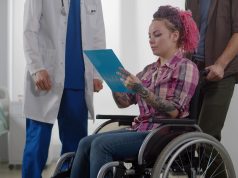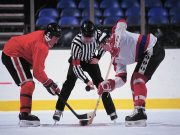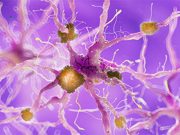Extreme Heat Tied to Higher ED Use for Mental Health Issues
Findings seen across psychiatric diagnoses, with stronger association noted among men
Meta-Analysis: Psychological Interventions Beneficial for Migraine
Psychological interventions have small-to-medium beneficial effect on improving migraine frequency, pain intensity
Genetic Analysis Suggests Coffee Intake Not Linked to Migraine
Genetically predicted increase in coffee consumption not causally linked to risk for all migraine or its subtypes
Recent Cancer May Increase Risk for Guillain-Barré Syndrome
Odds ratios for GBS were highest for cancers of lymphatic and hematopoietic tissue, respiratory tract, prostate, breast
Neuroimaging Measures Linked to Stages of Memory Impairment
Presence of Alzheimer disease pathology related to Stages of Objective Memory Impairment in cognitively unimpaired older adults
AAN: Years of Ice Hockey Play Increase Risk for Chronic Traumatic Encephalopathy
Dose-response relationship also seen for severity of chronic traumatic encephalopathy
AAN Issues Review of Evidence for Aducanumab in Alzheimer Disease
Class I study shows single doses of aducanumab safe, well tolerated; class II studies show reduced amyloid deposition on brain PET at one year
Early Posttraumatic Seizures Tied to Worse Traumatic Brain Injury Outcomes
Development of early posttraumatic seizures predicted via clinical risk factors
AAN: Tic Severity in Teens Tied to Social Media Use During Pandemic
Increased use of social media during the COVID-19 pandemic reported in small survey of adolescents with tic disorders
AAN: Migraine May Up Risk for Pregnancy Complications
Higher risk seen for preterm delivery, gestational high blood pressure, and preeclampsia



















